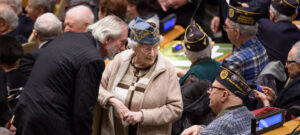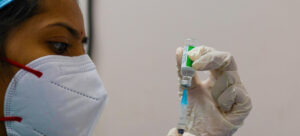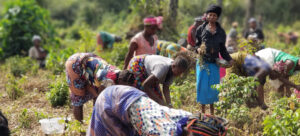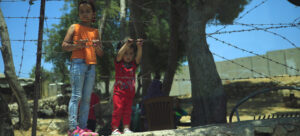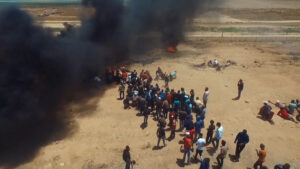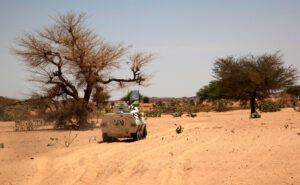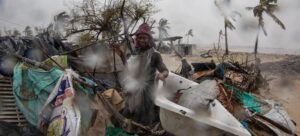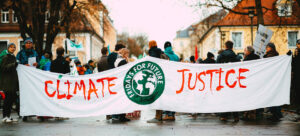António Guterres made the impassioned appeal in a video message for the International Day of Commemoration in Memory of the Victims of the Holocaust, observed on Wednesday, which honours the six million Jews and millions of others murdered by the Nazis during the Second World War.
As this year’s anniversary is taking place under the shadow of the pandemic, he noted that the crisis has exposed longstanding injustices and contributed to a renewed rise in antisemitism and xenophobia.
Denial and distortion
“Today, white supremacists and neo-Nazis are resurgent, organizing and recruiting across borders, intensifying their efforts to deny, distort and rewrite history including the Holocaust”, the UN chief said.
“The COVID-19 pandemic has given them new opportunities to target minorities, based on religion, race, ethnicity, nationality, sexual orientation, disability and immigration status. We must make urgent joint efforts to stop them.”
The UN High Commissioner for Human Rights, Michelle Bachelet, has also voiced concern over the “frightening” increase in hate crimes, and “sharp rise” in antisemitism online, over the past year.
“With renewed vigour, conspiracy theorists increasingly link extreme political ideologies and antisemitic delusions – weaving elaborate lies and falsehoods that lay responsibility for every kind of government failing on individual Jews or the Jewish community as a whole”, she said.
“Whipped up by irresponsible opinion-leaders – and amplified and legitimised by the uniquely powerful engines of digital media – these hate-filled fabrications are deeply damaging in themselves and can pose a real threat of violence.”
Push back against lies
Ms. Bachelet urged governments and digital platforms to evaluate their role in enabling such phenomena. She also explained how upholding human rights could end them.
“We need to push back against lies. We need to ensure that public discourse is based on facts, which objectively reflect truth – including the fundamental truth of our equal rights and dignity as human beings”, she said.
“We need to invest in human rights education in order to counter discrimination and groundless, toxic conspiracy theories.”
With the world again facing a rising tide of racism, xenophobia and antisemitism, the President of the UN General Assembly, Volkan Bozkir, urged people everywhere to speak out against discrimination.
“We are witnessing hatred towards other minorities and religious groups. Today, the onus is upon us to uphold truth, equality and protect the rights of the most vulnerable groups. All around the world,” he said in avideo message.
“We have to be vigilant, to call out any injustice we witness and defend pluralism. We have to condemn intolerance, incitement, harassment based on ethnic origin or religious belief.”
Heal broken societies
As countries focus on recovery after the pandemic, the UN Secretary-General called for action to address the fragilities and gaps it has revealed.
“This year must be a year of healing. Healing from the pandemic, and healing our broken societies in which hatred has all too easily taken root”, he said.
“As we remember those who died in the Holocaust and honour the survivors, our best tribute is the creation of a world of equality, justice and dignity for all.”
A virtual memorial
Holocaust distortion and denial is the topic of a panel discussion on Wednesday, part of the UN events taking place during the International Day, which will be held online.
The Commemorative Programme will begin with a virtual ceremony where German Chancellor Angela Merkel will deliver the keynote address.
Participants will also hear from Irene Butter, who will share her experiences of surviving the Holocaust in a conversation with CNN’s Chief International Correspondent, Clarissa Ward.
